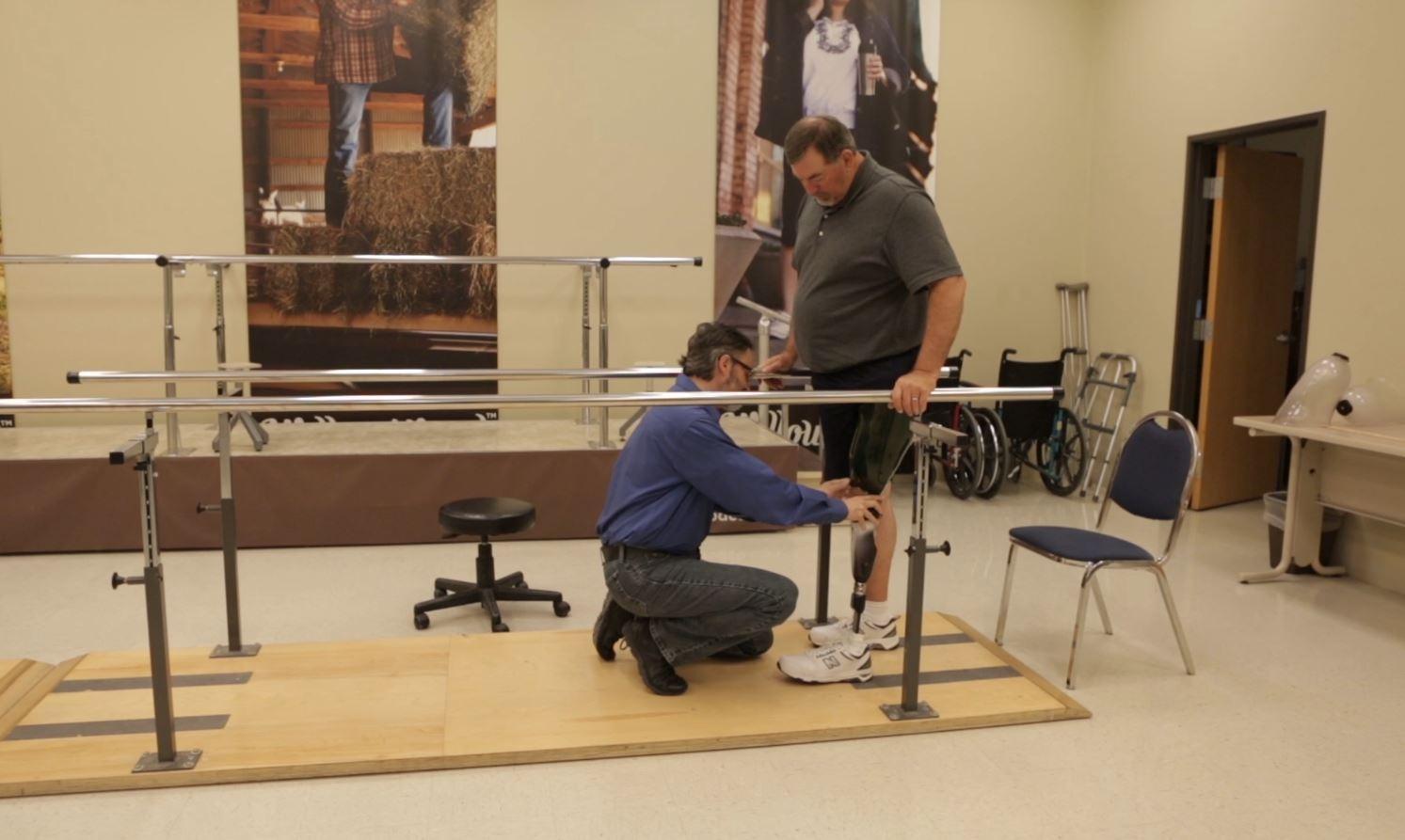A prosthetics career is a healthcare specialization concerned with the creation and fitting of prosthetic devices. Prosthetists design and fit patients with prosthetic devices, while orthotists It may take at least seven years of education and training to become a licensed prosthetist, less time than it
EducationCertificationWork ExperienceObtaining A PositionIn general, there are four steps you will need to take in order to become a prosthetist. The first step is to gain a post-secondary education. Beginning in the year 2012, all accredited prosthetist programs were required to be at the master’s level. Entry-level master’s programs include courses in topics like anato…See more on
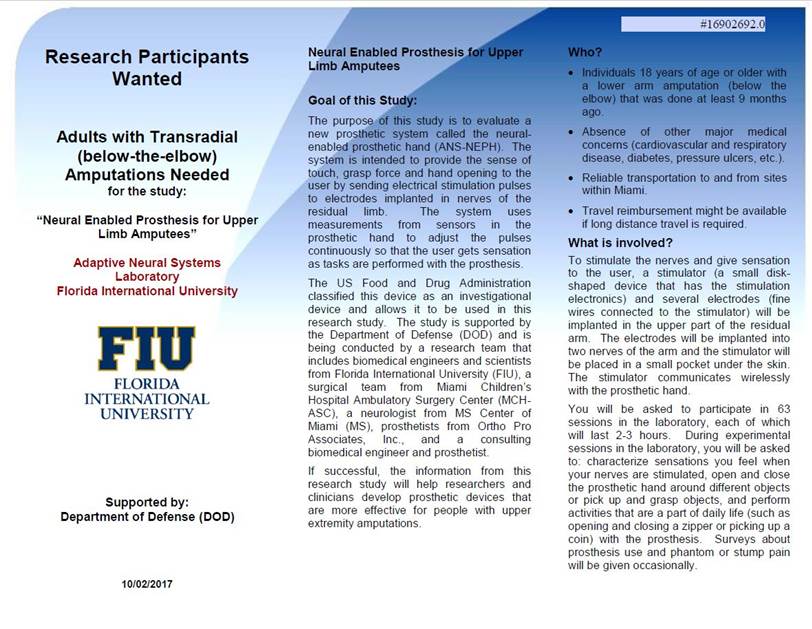
fiu participants wanted research link short release below

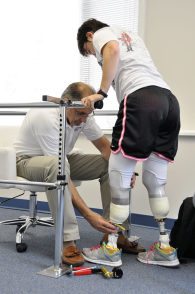
prosthetist become prosthesis
can do a three or four year university degree to become a prosthetist or an orthotist. It's important the course is approved by the British Association of Prosthetists and Orthotists and the ...Estimated Reading Time: 4 mins
prosthetist

afghan haruna togi kyodo
28, 2020 · Orthotists and prosthetists need at least a master’s degree in orthotics and prosthetics and certification before entering the field. Both orthotists and prosthetists must complete a 1-year residency before they can be Reading Time: 3 mins
How hard is it to become a prosthetist? How much does a certified prosthetist make? How much does a certified prosthetist make? An accredited clinical prosthetic and orthotic program (through BCIT or GBC) A 3,450-hour paid residency under the supervision of a certified prosthetist or orthotist. …

prostate cancer
Many individuals lose their limbs or sustain orthopedic injuries for various reasons such as combat injuries, accidents and birth defects.
Many orthotists and prosthetists become certified regardless of state requirements. The American Board for Certification in Orthotics, Prosthetics & Pedorthics (ABC) and the Board of Certification/Accreditation (BOC) offer certifications.
Many people who decide to become a prosthetist have received artistic training in sculpture or fine art. This work term provides an opportunity to interact with patients, learn how to properly fit and measure for a new prosthetic device and the types of issues that can occur with poorly fitted devices.
How To Become a Prosthetist. In order to practice, prosthetists must complete a master's degree, alongside a 2-year associate degree or a 4-year bachelor's degree in a field that is related to prosthetics. Some states also require prosthetists to be licensed to practice their profession.
Questions about becoming a prosthetist. I in NJ and just finished my bachelor's degree in technical theater (lol didn't see that coming, did you?) Anyway, I've decided that theater is not for me and I think prosthetics is (probably more likely a technician but I'm open to practitioner as well).
If you're interested in becoming a certified prosthetist, one of the first things to consider is how much education you need. We've determined that of Choosing the right major is always an important step when researching how to become a certified prosthetist. When we researched the

prosthetist

approaches limbs sampson goodhall tries limb
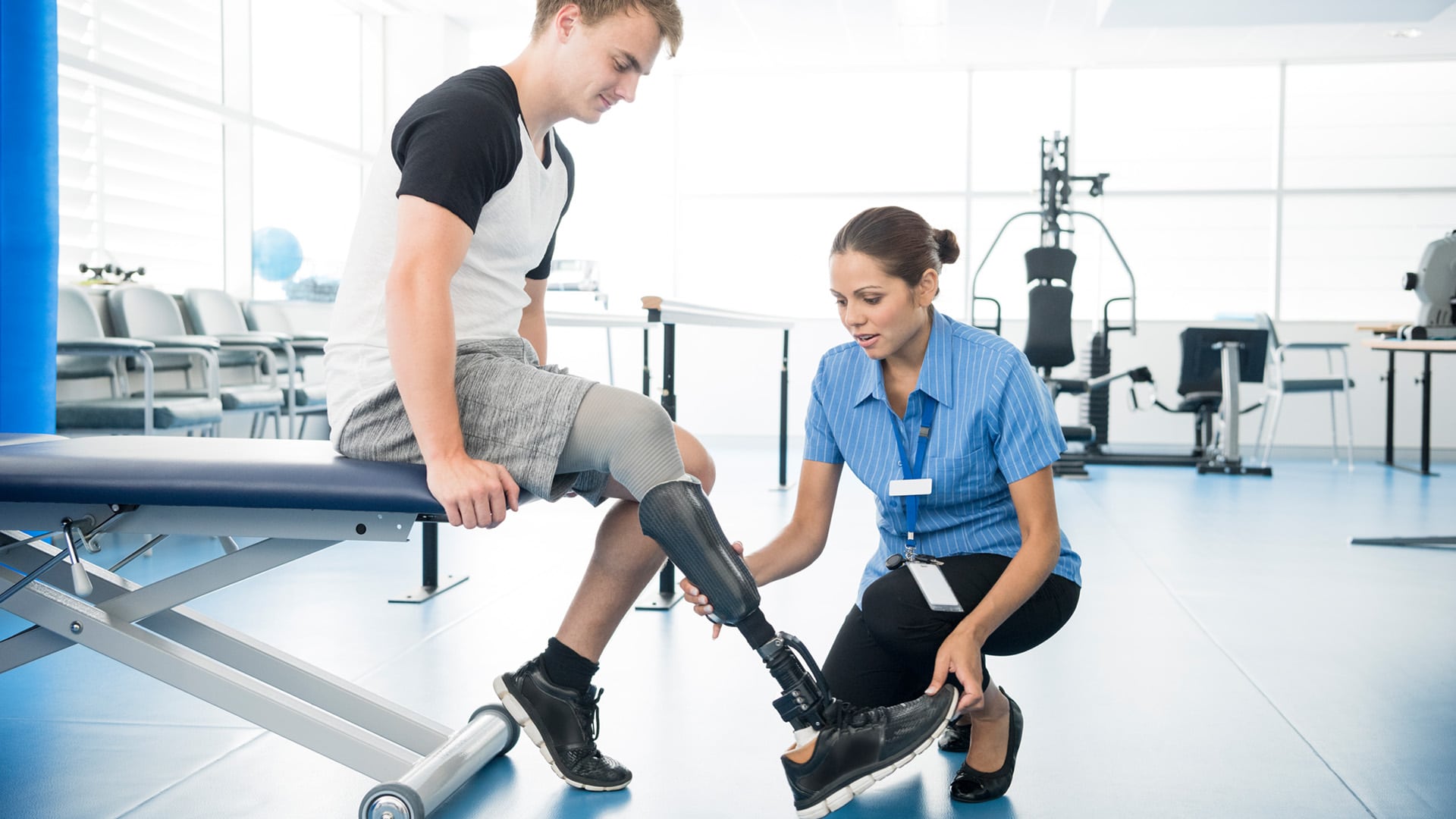
prosthetist orthotist career
If you want to become an orthotist and prosthetist but don't want to spend at least 6 years getting your Bachelor's and Master's degrees, becoming an Most Master's programs take 2 years to complete, during which you'll learn how to work with orthotics and prosthetics materials and provide

To become a prosthetist or an orthotist, you must first successfully complete an approved degree in prosthetics and orthotics. When applying for a prosthetics and orthotics degree, you'll be asked to show how you think the NHS values apply in your everyday work.
How to Become One: Orthotists and prosthetists need a master's degree and certification. Both orthotists and prosthetists must complete a residency Job Outlook: Employment of orthotists and prosthetists is projected to grow 18 percent over the next ten years, much faster than the average
30, 2021 · There are several education requirements to become a Certified Prosthetist. Certified Prosthetists usually study Biology, Biomedical Engineering or Mechanical Engineering. 65% of Certified Prosthetists hold a Bachelor's Degree and 12% hold a High School Diploma. We found these by analyzing 25 Certified Prosthetist resumes to investigate the topic of …
Prosthetist. Prosthetists design and create artificial limbs for people who need them. They care for patients who have arms or legs missing at birth; or lose limbs As a prosthetist, you would provide a prosthesis to people who have lost arms or legs through amputation; or were born with missing limbs.
To Become a Prosthetist Graduate from High School or Complete a GED (Four Years)Earn a Bachelor’s Degree (Four Years)Intern, Volunteer, or Work in a Orthotics or Prosthetics Clinic (Optional, One to Two Months)See full list on
20, 2021 · A master's degree in orthotics and prosthetics is required to work as a prosthetist, along with a 1-year residency. During this education and training, students learn about various types of devices and get clinical experience. After completing these requirements, they can take the national certification exam.
As a prosthetist or orthotist you'll aim to improve people's mobility and help them be as pain free as possible. The roles of a prosthetist and orthotist Some practitioners also go on to set up their own clinics, either independently or with other prosthetists and orthotists. Find out how Becky became
Reading Time: 4 minsPublished: Jan 08, 2020 Understand the job description and responsibilities of a Prosthetist. What does a Prosthetist …Learn best tips to become a Prosthetist. Here are some tips to become a Prosthetist. Sit …View best colleges and universities for about whether is it worth to be

How to get a career in prosthetics. Prosthetics is a specialized medical field regulated by national and state-specific laws. To make sure you can help This can involve becoming a prosthetist who equips patients with artificial limbs, an orthotist who produces braces for limbs or even a
08, 2021 · How to Become an Orthotist and Prosthetist. Orthotists and prosthetists need a master’s degree and certification. Both orthotists and prosthetists must complete a residency before they can be certified. Pay. The median annual wage for orthotists and prosthetists was $70,190 in May 2020. Job Outlook

prosthetist
How to apply. Applying with a degree. To become a prosthetist or an orthotist, you must first successfully complete an approved degree in As well as a genuine interest in prosthetics or orthotics, you'll need to meet the academic requirements of the apprenticeship - typically
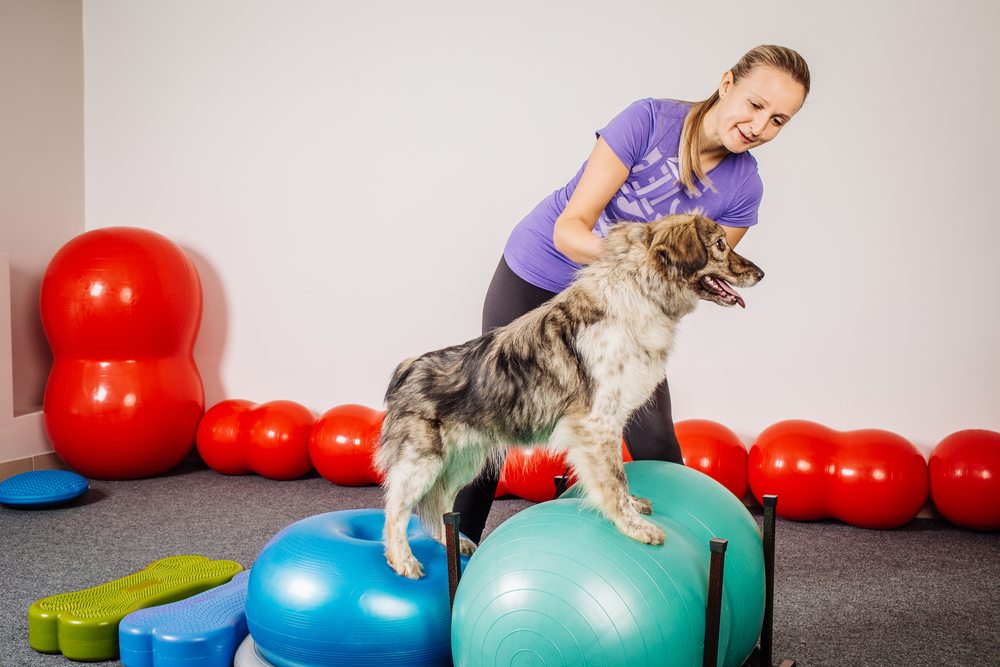
animal trainer wildlife become salary job animals career develop retain attract pt staff jobs different kinn careers onlinedegree
To become a prosthetist you must earn a master's degree in orthotics and prosthetics and must become a certified prosthetist (CP) before you can start practicing. All of these programs should have psychometrically validated certification standards and a set of educational criteria laid out by

Learn about all of the steps required to become an Orthotist or Prosthetist right here! Orthotists and Prosthetists require a bachelor's degree before they can become certified. However, requirements for associated careers, such as fitters, assistants, and technicians will often not be as stringent.
How do you become a dental prosthetist? To become a qualified dental prosthetist and achieve a dental career, you must first attain a tertiary qualification in dental technology and fulfill the requirements to become a registered dental technician.
How do I become a certified prosthetist orthotist? To become a prosthetist/orthotist, you usually have to complete a degree at university with a major in anatomy and physiology, followed by a postgraduate qualification in prosthetics and get into the degree courses you
Thinking of becoming a Prosthetist? Learn more about the role including real reviews and ratings from current Prosthetists, common tasks and duties, how much Prosthetists earn in your state, the skills current Employers are Prosthetist. Prescribe, design, fit and monitor orthoses and prostheses.
Most prosthetists need to be able to work and be able to machine a wide array of different parts, ranging from thermoplastics and acrylic resin to aluminum. Career Opportunities and Job Outlook-Unknown: The exact rate of growth for the field is unknown. However, there is every reason to
How to become a Prosthetist/Orthotist. Prosthetists/Orthotists assess the physical and functional limitations of people resulting from illness and disabilities, and provide prostheses (artificial limbs) and orthoses (supportive devices) to restore function or compensate for muscular and skeletal
Most work full time. How to Become an Orthotist and Prosthetist. Orthotists and prosthetists who fabricate orthotics and prosthetics may be exposed to health or safety hazards when handling certain materials, but there is little risk of injury if workers follow proper procedures, such as wearing
18, 2021 · If you're interested in becoming a Certified Prosthetist/Orthotist, one of the first things to consider is how much education you need. We've determined that of Certified Prosthetist/Orthotists have a bachelor's degree. In terms of higher education levels, we found that of Certified Prosthetist/Orthotists have master's Reading Time: 5 mins
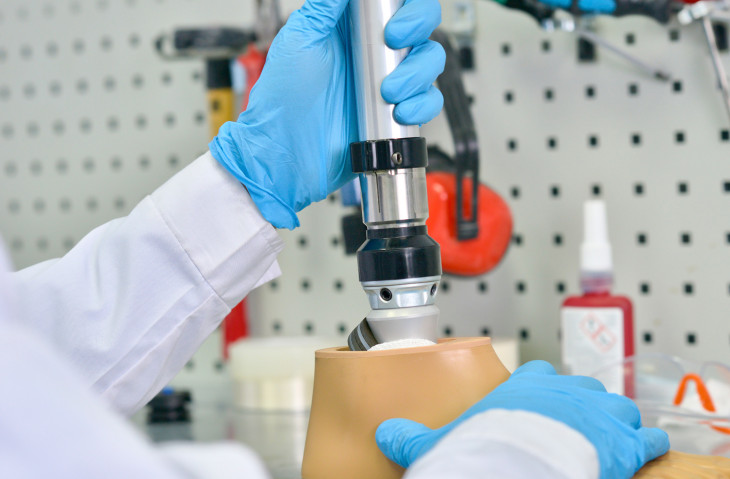
prosthetist orthotist become wage prosthetic leg expected
Meet Becky, 21, to find out more about life as a prosthetist. You can do a three or four year university degree to become a prosthetist or an orthotist. It's important the course is approved by the British Association of Prosthetists and Orthotists and the Health and Care Professions Council.
Routes to becoming a prosthetist or orthotist. Both prosthetists and orthotists use technology to help patients regain mobility. Most Prosthetics & Orthotics courses at university are HCPC-approved, but make sure you check. A Prosthetics & Orthotics course will teach you how to
How to Become a Prosthetist. Share this article The Prosthetist examines patient and prepares cast or model to assist with the construction of the appliance and selection of required materials/components.
How to Become a Prosthetist. What Does a Prosthetist Do? To become a prosthetist, you need a master's degree in orthotics and prosthetics, which typically spans two years and includes completion of a one-year residency program in which you become more familiarized with your duties.

cpo mcclernan clinician genesee utica hangerclinic
How Long Does it Take to Become an Orthotist or Prosthetist? These programs take two to three years to complete. Most programs have students specialize in either orthotics or prosthetics; however, the program at Baylor University prepares students to enter both fields.
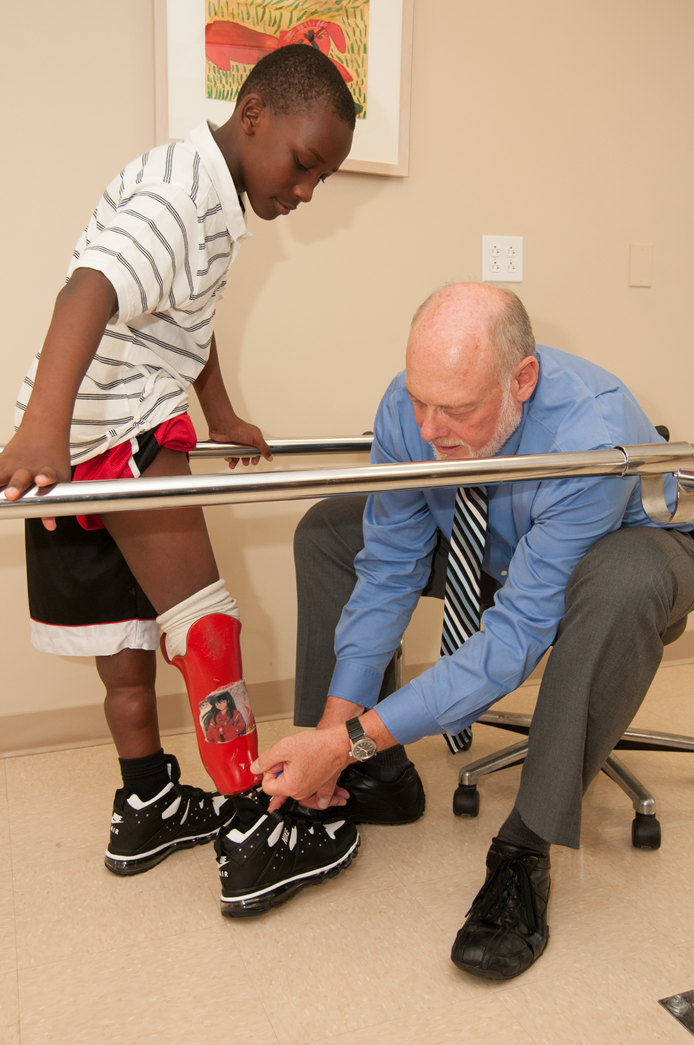
prosthetics pediatric consultation patients
become a prosthetist you must earn a master’s degree in orthotics and prosthetics and must become a certified prosthetist (CP) before you can start Reading Time: 5 mins
How to Become a Prosthetist. Find Your Degree! Select a Degree Level. Got it! A prosthetist measures, designs, fits, and services a prosthesis. Theses professionals have numerous opportunities to be creative and interact with individuals whose lives have been dramatically affected by
How hard is it to become a prosthetist? A master's degree in orthotics and prosthetics is required to work as a prosthetist, along with a 1-year residency. During this education and training, students learn about various types of devices and get clinical experience.
